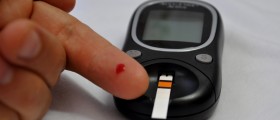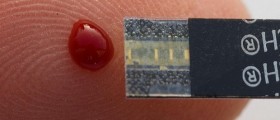
Gestational diabetes
Glucose is simple sugar that the body cells use as the primary source of energy. Carbohydrates break down and create glucose, which reaches the cells through the bloodstream. The level of glucose in the blood is controlled by the hormone insulin, which is produced by the pancreas. When the level of glucose in the blood is too high, then the person suffers from diabetes.
There are three types of diabetes. In type 1 diabetes, the pancreas does not produce enough amounts of insulin; in type 2 diabetes, the body cells do not respond to insulin; and the third type of diabetes occurs in pregnancy and is called gestational diabetes. It is very similar to type 2 diabetes. Gestational diabetes mellitus, abbreviated GDM, is also called glucose intolerance in women during pregnancy. This type of diabetes usually affects women in the fifth or sixth month of the pregnancy. In gestational diabetes, insulin in the blood is blocked due to various hormones that appear during the pregnancy. The hormones that block the insulin are progesterone, estrogen, prolactin, cortisol, and human placental lactogen. When the insulin is blocked, it is called insulin resistance. The women who have someone in family with diabetes, or those women who are obese or suffer from hypertension are at high risk to develop gestational diabetes during pregnancy.
Gestational diabetes test
Every pregnant woman should do gestational debates test after the 24th week of the pregnancy. There are two types of gestational diabetes test.
The first type of the gestational diabetes test is called glucose challenge screening test, in which the patient has to drink glucose in the form of a sweetened drink called glucola. In a little while, the blood sugar levels are increased and after an hour the sample of blood is taken from the patient in order to measure the rate of glucose metabolism.Glucose tolerance diagnostic test is the name for the second gestational diabetes test. When this test is applied, the pregnant woman should not eat for about ten hours. Then, she has to drink a glucose laden drink and in the next three hours, the blood samples are taken from the pregnant woman.The glucose challenge screening test does not require any special preparations while for the glucose tolerance diagnostic test special preparations and dietary modifications are necessary. A pregnant woman who opts for this second type of diabetes test has to have a special diet for three days prior to the test.
















Your thoughts on this
Loading...